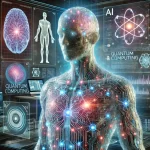
Predicting Alzheimer’s Progression: A New Hope with Novel Learning Frameworks
January 30, 2024Alzheimer’s disease, a progressive neurodegenerative condition, casts a long shadow of uncertainty over patients and their families. Its gradual decline leaves loved ones yearning for answers, especially about the disease’s future course.
Thankfully, a ray of hope emerges with the development of novel learning-based frameworks like DETree. This exciting advancement promises to predict Alzheimer’s progression with greater accuracy, bringing much-needed clarity to the future.
Understanding DETree: A Roadmap for Progression
DETree, like a skilled cartographer, maps the intricate landscape of Alzheimer’s progression. It recognizes that the disease unfolds in distinct stages, not as a linear march. By analyzing data from PET scans and MRIs, DETree pinpoints a patient’s location on this spectrum, offering invaluable insights into their future trajectory.
This knowledge empowers patients and their families to prepare for what lies ahead. They can make informed decisions about caregiving, treatment options, and lifestyle adjustments, navigating the challenges with a sense of preparedness.
Why is Prediction So Crucial?
Accurately predicting Alzheimer’s progression holds immense value. It unlocks doors to:
- Personalized treatment: Knowing the disease’s pace allows doctors to tailor treatment plans, optimizing their effectiveness and minimizing unnecessary interventions.
- Enhanced clinical trials: By identifying patients most likely to benefit from experimental therapies, clinical trials become more efficient and focused, accelerating the path to new treatments.
- Empowered patients: Equipped with knowledge about their future, patients can actively participate in their care decisions, fostering a sense of control and agency.
Challenges Remain, but Progress is Promising
While DETree represents a significant leap forward, predicting Alzheimer’s progression remains a complex challenge. The disease’s inherent variability and the lack of a definitive diagnostic test pose hurdles that researchers continue to address.
However, with the continuous development of sophisticated frameworks like DETree, fueled by advancements in machine learning and artificial intelligence, the future of Alzheimer’s prediction looks brighter. We can hope for a day when personalized roadmaps guide patients and their families through the disease’s journey, offering not just predictions, but a sense of control and hope in the face of uncertainty.
Zhang, L., et al. (2024). Disease2Vec: Encoding Alzheimer’s progression via disease embedding tree. Pharmacological Research. doi.org/10.1016/j.phrs.2023.107038.


















